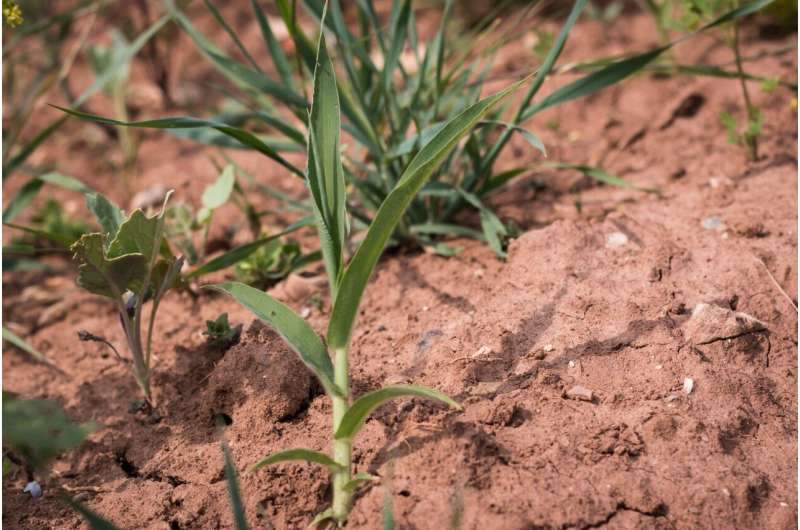This article has been reviewed according to Science X's editorial process and policies. Editors have highlighted the following attributes while ensuring the content's credibility:
fact-checked
peer-reviewed publication
trusted source
proofread
Engineering plants for a changing climate

Climate change is affecting the types of plant varieties we can cultivate, as well as how and where we can do so. A new collection of articles in the journal PLOS Biology explores the twin challenges of engineering plants for resilience to climate change and enhancing their carbon-capture potential. PLOS Biology Editors Pamela Ronald & Joanna Clarke provide a summary editorial, and details regarding the other papers may be found below.
To meet the agricultural challenges caused by climate change and a growing population, we need to improve crop production. This Perspective from industry leaders including Catherine Feuillet calls for more and better public–private partnerships to accelerate discoveries in crop research.
How can we sustainably feed our growing population as the climate changes? This Perspective from Megan Matthews argues that by engineering photosynthesis to increase carbon capture, we can mitigate climate change and increase food production.
As climate change affects weather patterns and soil health, agricultural productivity could decrease substantially. Synthetic biology can be used to enhance climate-resilience in plants and create the next generation of crops, if the public will accept it, according to this article from Jennifer Brophy.
The microbiome of cropland soils could be manipulated to accelerate soil carbon sequestration. This Perspective from Noah Fierer suggests how this could be achieved and outlines the general steps required to develop, implement, and validate such microbial-based strategies.
Of all crop species, rice has the most genetic potential for adaptation to climate change, and Genebank accessions have been critical in developing improved stress-tolerant rice varieties. This Community Page from Kenneth McNally highlights new tools and resources from the International Rice Research Institute for accelerating the identification and deployment of genes conferring climate-change resilience.
Our basic understanding of carbon cycling in the biosphere remains qualitative and incomplete, precluding our ability to effectively engineer novel solutions to climate change. How can we attempt to engineer the unknown? This Essay from Patrick Shih proposes that the main contributions of plant synthetic biology in addressing climate change will lie not in delivering desired genotypes but in enabling the predictive understanding necessary to design target genotypes in the first place.
Cultivated species have reduced genetic diversity relative to their closest wild relatives. Preserving the rich genetic resources that crop wild relatives offer while avoiding detrimental variants and maladaptive genetic contributions is a central challenge for ongoing crop improvement. This Essay from Jeffrey Ross-Ibarra supports the use of traditional varieties as an intermediate between wild relatives and modern cultivars to increase genetic diversity in crops.
As the climate changes, so too will the relationship between humans and the plants we use for food, medicine, shelter, fuel and clothing. What, how and where we cultivate plants will change, as will the potential biotic and abiotic stresses faced by cultivated plants. This collection of articles explores strategies to help plants adapt to a changing climate, including ancient and modern breeding techniques, genome engineering, synthetic biology and microbiome engineering.
More information: Joanna Clarke et al, Engineering plants for a changing climate, PLOS Biology (2023). DOI: 10.1371/journal.pbio.3002243
Journal information: PLoS Biology
Provided by Public Library of Science





















